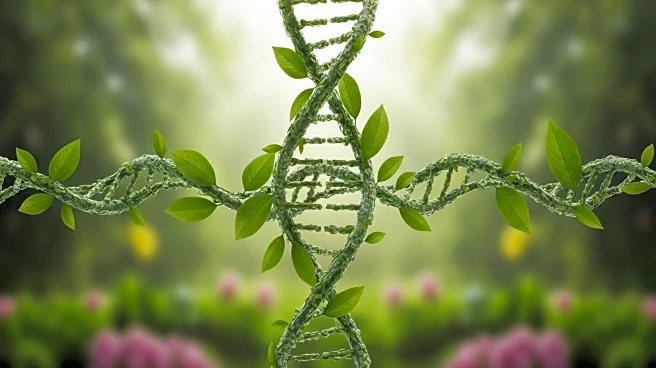What's Happening?
The International Union for Conservation of Nature (IUCN) is set to vote on a motion that could impose a moratorium on genetic engineering of wildlife. This proposal has sparked a debate among conservationists about the role of genetic modification in preserving biodiversity. The motion, if passed, would 'pause' any form of genetic engineering, including the introduction of modified microbes. The discussion is fueled by the potential use of CRISPR gene-editing technology, which can create gene drives to spread beneficial traits or eliminate invasive species. Proponents argue that these technologies are crucial for addressing environmental challenges, while opponents caution against unforeseen ecological impacts.
Why It's Important?
The outcome of the IUCN vote could significantly influence conservation strategies worldwide. A moratorium might halt funding for genetic engineering projects and lead some countries to adopt similar bans. This decision could impact efforts to combat biodiversity loss, as genetic engineering offers tools to enhance species' resilience to diseases and climate change. The debate highlights a broader ethical dilemma: balancing technological intervention with natural conservation. The decision could set a precedent for how emerging biotechnologies are integrated into environmental policy, affecting stakeholders ranging from conservation organizations to biotech companies.
What's Next?
If the moratorium is approved, it could lead to a reevaluation of current conservation projects involving genetic engineering. Conservationists and policymakers may need to explore alternative strategies or develop new guidelines for the responsible use of biotechnology. The decision could also prompt further research into the ecological and ethical implications of genetic modification. Stakeholders, including environmental groups and biotech firms, are likely to engage in discussions to address concerns and explore potential compromises.
Beyond the Headlines
The debate over genetic engineering in conservation reflects a deeper philosophical divide about human intervention in nature. While some view genetic modification as a necessary tool for preserving biodiversity, others see it as an overreach that could disrupt natural ecosystems. This discussion raises questions about the role of technology in conservation and the ethical considerations of altering wildlife genetics. The decision by the IUCN could influence public perception and regulatory approaches to biotechnology in environmental management.











